Cool! Looks like I’m going to be on page 52 of Craig Mussleman’s book, Talent Next Door.

Kicking Back
Thinking about the Arts Squared event in downtown Waterloo tomorrow. Hope everyone comes out. Looks like it’s going to be a nice day for it.
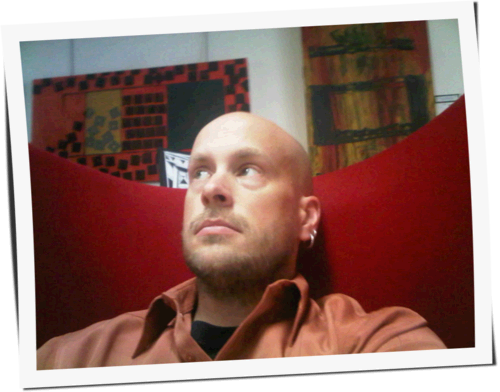
Talent Next Door Book
Hey, want to get your work published?
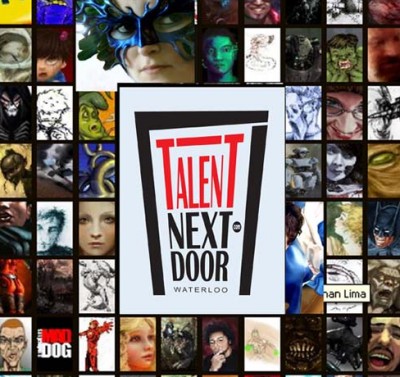
Kitchener native, Craig Musselman, has undertaken an ambitious project, and is putting together a book of local artists.
Nobody ever became a famous artist hiding their art away. If you (or people around you) think you have some artistic talent, give it a shot! With 100 pages, you have a good shot at being published.
Deadline for submissions is July 31, 2010, so get going!
http://www.talentnextdoor.com/
Who owns the rights?

Image via Wikipedia
This is an important document which helps out when determining who owns the rights to an artistic body of work.
Learn it, know it, live it.
A golden rule you should keep in mind: The copyright on a work always belongs to the author, whether he was working on his own, on commission, freelance, on contract, as a consultant or pro bono ~ with the exception of works created by an employee or consisting of a photograph, engraving or portrait made to order ~ unless the copyright has been transferred to someone else by means of a signed document.
Art vs. Sport vs. Video Games
An interesting comparison by Pharyngula, a molecular biologist, of all things. A rebuttal to Roger Ebert.
Art is a kind of distillation and representation of human experience, filtered through the minds of its creators. A great painting or poem is something that represents an idea or emotion, communicated through the skill of an artist, to make you see through his or her eyes for a moment. Computer games just don’t do that. No team sits down to script out a video game with the intent of creating a tone poem in interactive visual displays that will make the player appreciate the play of sunlight on a lake, for instance. It’s all about balance and game play and keeping the action going and providing a means to win or lose, and most of all, it’s about giving the player control in the game environment. No one wants to play a game that’s on rails and simply leads you to the conclusion the author wants. In that sense, a good game hands the player a toolbox to work within the game environment — it is to art as providing a studio and a set of pigments and a collection of brushes.
Video games will become art when replaying the performance becomes something we find interesting, when the execution of those tools generates something splendid and lasting. It just doesn’t now, though. If you want to see something really boring, watch someone else playing a video game. Then imagine recording that game, and wanting to go back and watch the replay again sometime. That’s where games fail as art, which is not to say they can’t succeed as something comparable to a sport — we may want to explore the rules of a game at length, and repeatedly, and we may enjoy getting better at it. But no matter how well or how long you play a game, it’s never going to be something you can display in your home as a representation of an experience.
Six Art Market Myths
I don’t like to see my beliefs debunked, but here they are…
Art Has Value. That is, art has monetary value simply because it exists. Not true. Art only has monetary value if someone is willing to purchase it. Many people who have had the sad task of administering an artist’s estate have found out they have been stuck with a large number of artworks for which there was no market.
Achieving Brilliant Lighting Effects
A cool tutorial for how to make awesome-looking lighting effects in Photoshop
Achieve Brilliant Lighting Effects in Photoshop | Design.CreativeFan
Square up with Square

Image via Wikipedia
Very cool-looking way for anyone to take VISA and other credit card payments — even using your cell phone.
Square Inc. is a new startup cofounded by Jack Dorsey of Twitter and Jim McKelvey which will allow businesses and individuals to take credit card payments from customers anywhere. Receipts and confirmations are paperless and get sent to buyers via text message or email.
Artists participating in Central Art Walk
For those interested in seeing what ZuckerLoft Studio will be offering in the up-coming art walk, here’s a list of talent:
Ryan Brooks
Ryan Brooks is a Toronto based artist who enjoys working in a variety of media including: Ink drawing, painting, photography, and sculpture. He gains great inspiration from viewing other artists’ work and believes that the energy created by a piece has a palpable effect on the viewer.
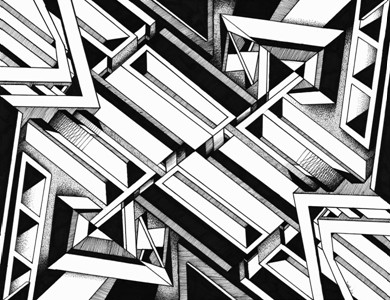
A portion of his portfolio can be viewed online at: http://www.behance.net/jrbrooks
Elizabeth Backler, Massey Soap House
In 2008, Liz started Massey Soap House, creating bar soap as well as liquid hand soap, shower gel and other bath and body goodies. She is in the process of launching her website, http://www.masseysoaphouse.com/.

Phaelon
Phaelon has been a DJ for the past 8 years and a producer for the past 3. He is active in the UW DJ club and a former resident at the Rude Native Bistro in Waterloo and at the K/W Art Gallery in Kitchener.

He can be reached for bookings at phaelon@phaelon.cc, and his website is http://www.phaelon.cc/.
Stayce Webber
Stayce is an excellent pen & ink, and watercolour painter whose subject matter runs toward the tribal. Many of her works depict dancers festooned with jewellery.
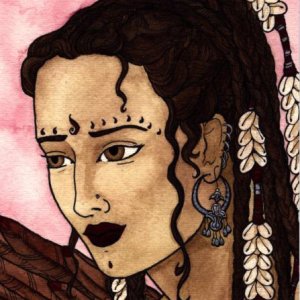
Blond Heretic Silk Veils
Rebecca will be showing off a display of hand-dyed silk veils. This late addition to the Studio’s lineup is a welcome one. Her website is http://www.blondheretic.com/, and her veils are available for purchase online.
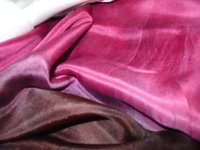
And there’s me, of course.
Art on display on CTV
In a segment for Down Hips dance studio, Mandy is interviewed in front of one of my pieces. Sweet!
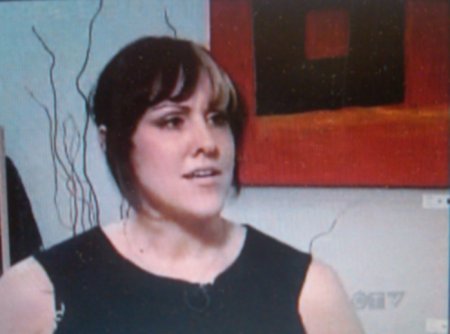
Tweens bellydancing for exercise




